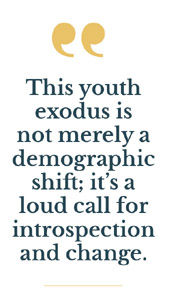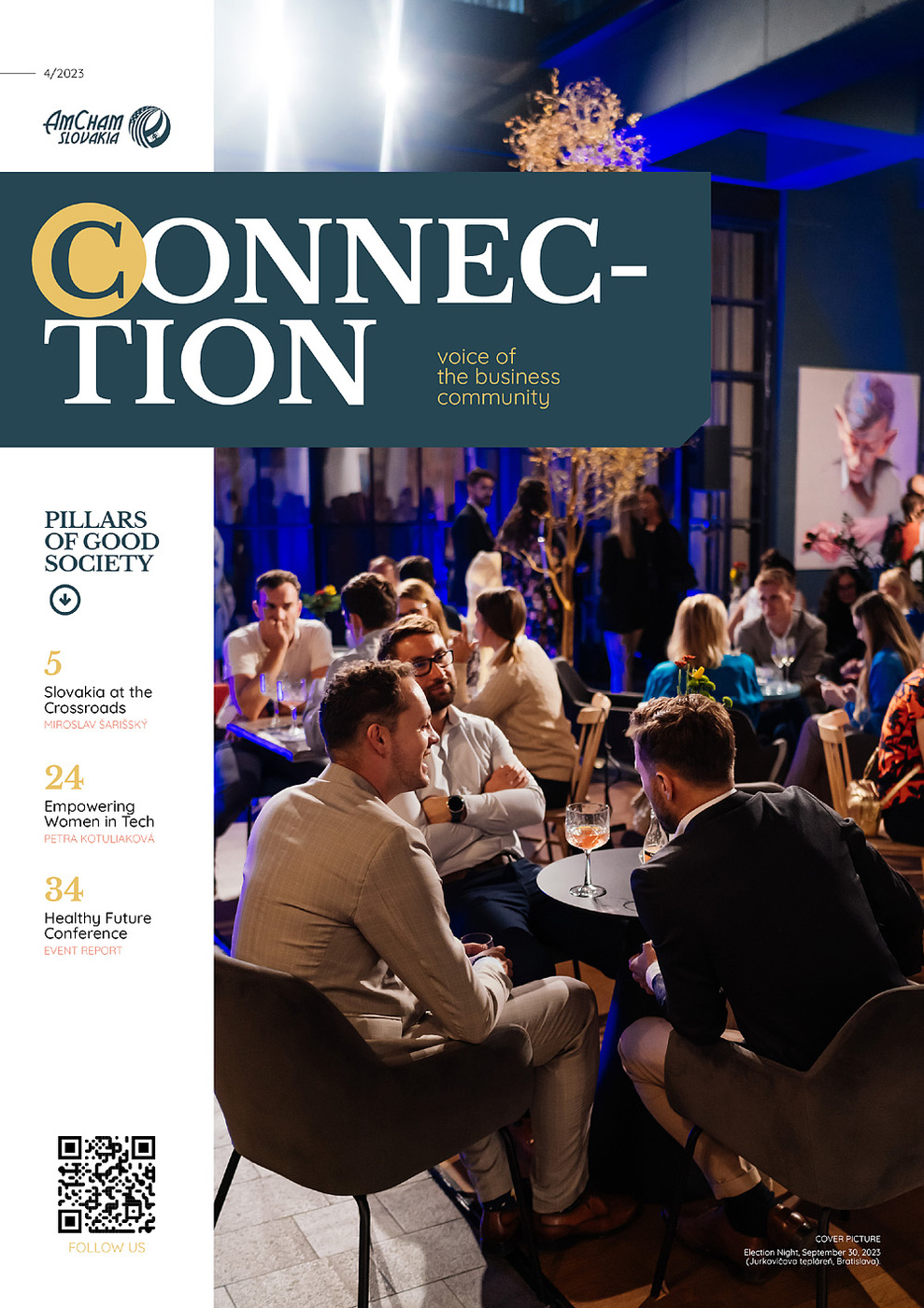Their departure, driven by a lack of confidence in Slovakia’s trajectory and a perceived absence of opportunities, is both a symptom and a stark warning of deeper systemic issues.
This youth exodus is not merely a demographic shift; it’s a loud call for introspection and change. When the brightest minds, filled with potential and promise, feel the need to seek greener pastures, it’s a reflection of their eroding faith in the system. Their decision to leave is not impulsive; it’s a calculated response to the prevailing sentiment and the nation’s trajectory, it’s a sign of impending decline.
The recent Rule of Law Index 2022 paints a somber picture. Slovakia’s position has deteriorated from the previous years, ranking at the bottom among EU countries. Such rankings, while just numbers on paper, are indicative of deeper challenges that the nation grapples with. The frequent changes in legislation and concerns about the quality of law-making have cast shadows over the investment climate in Slovakia. Companies, both domestic and international, are increasingly wary, questioning the effectiveness of investment protection mechanisms in place.  Businesses, the backbone of any economy, have voiced concerns too. The abuse of the legislative process by Parliament members, which often bypasses public consultation and expert discussions, is a growing sore point. This approach not only sidelines valuable insights from ministries and experts but also alienates the very citizens the laws are meant to serve. For a predictable and transparent legislative process, systematic changes are imperative. The constant churn of amendments leads to confusion, bureaucracy, and a sense of instability. There’s a pressing need to minimize frequent changes to laws and adhere to established legislative norms. Moreover, making legislative proposals comprehensible is vital. After all, laws should be crafted for their primary audience: the citizens. In recent years, this principle seems to have been forgotten, with legislation often appearing convoluted and inaccessible.
Businesses, the backbone of any economy, have voiced concerns too. The abuse of the legislative process by Parliament members, which often bypasses public consultation and expert discussions, is a growing sore point. This approach not only sidelines valuable insights from ministries and experts but also alienates the very citizens the laws are meant to serve. For a predictable and transparent legislative process, systematic changes are imperative. The constant churn of amendments leads to confusion, bureaucracy, and a sense of instability. There’s a pressing need to minimize frequent changes to laws and adhere to established legislative norms. Moreover, making legislative proposals comprehensible is vital. After all, laws should be crafted for their primary audience: the citizens. In recent years, this principle seems to have been forgotten, with legislation often appearing convoluted and inaccessible.
At the heart of these challenges lies the rule of law. History has repeatedly shown that nations anchored in the rule of law not only achieve but sustain robust economic growth. It’s not merely about GDP numbers or trade balances; it’s about building a society where justice, fairness, and transparency are the cornerstones. A society where every citizen, irrespective of their status or wealth, is equal in the eyes of the law.
“It’s the rule of law, stupid.” Just as Bill Clinton’s “It’s the economy, stupid” highlighted the centrality of economic issues in his political campaign, Slovakia needs to understand that the future of the country, its integrity, stability, and economic development rest on its adherence to the rule of law. In essence, regardless of other political or economic concerns, if the rule of law is compromised, the very fabric of democracy and justice is at risk. This phrase should serve as a reminder for all that the rule of law should be at the forefront of governance decisions, as it is the bedrock upon which all other societal structures are built.
The path ahead for Slovakia is fraught with challenges, but it’s also ripe with opportunities. The nation still has the resources, the expertise, and the will to navigate this crossroads. But it requires a collective commitment, a unified vision, and decisive action. The rule of law must be more than words in a constitution; it must be the guiding principle in governance, policy-making, and daily life. The rule of law must be a compass for every public official, every politician and every citizen.
In wrapping up, Slovakia’s decision at this crossroads will shape its future for generations. It can either address its challenges head-on, with the rule of law as its compass, or risk a future mired in uncertainty and instability. The choice is clear, and the stakes are high. The clearest way to understand how high the stakes are is to recall what has happened when there was no rule of law and imagine what will happen without it.
As our sons and daughters watch, one can only hope that Slovakia chooses a path that ensures prosperity, fairness, and a just future for all its citizens.
Miroslav Šarišský, Global Human Resources Director, Newcleo



Follow us